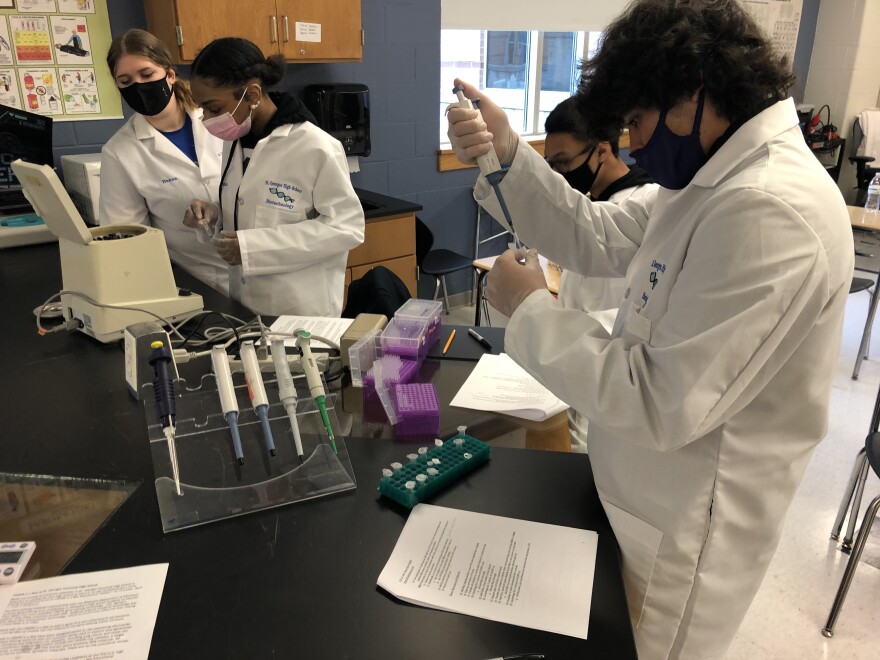Some Delaware high school students are now learning how to use the gene-editing technology known as CRISPR to conduct experiments.
“So we are doing gene editing on bacteria,” said Hanna Taylor in her 11th grade class Thursday. She’s a student in the Biotechnology program at St. Georges Technical High School in southern New Castle County.
Taylor is part of the first ever high school class to use the CRISPR in a Box Educational Toolkit from ChristianaCare’s Gene Editing Institute.

The students use CRISPR to edit the gene of a non-infectious E. coli bacteria in a test tube to make it resistant to an antibiotic.
Dr. Eric Kmiec is director of ChristianaCare’s Gene Editing Institute. He calls CRISPR the breakthrough technology of the decade and perhaps past five decades, but concedes the technique is not yet precise or efficient and can produce a diversity of outcomes. He says that reality is built into the educational kit for students.
“Having gone through and performed this reaction, we’re hoping they act as ambassadors for the technology—both saying the optimism and the pessimism about how this is going to work, so people can get the truth and make their decisions about how this is affecting society,” said Kmiec.
Scientists in China shocked the world in 2018 using CRISPR to alter the genetic makeup of human twins in utero. The technique has since been used in the US to treat sickle cell disease. It’s also used in agriculture, aquaculture and a list of other fields.
In addition to conducting the experiment, the students at St. Georges Tech discuss the ethics of using CRISPR in a clinical setting.
“We just have to find the balance between using it—using the information we have for gene therapy and helping fight against diseases,” said Antonio Rivera, another 11th grader in the biotech program. “But we have to draw a line at a certain point and realize we as humans, we still are evolutionary creatures, and with permanent alterations to DNA, we don’t know the permanent effects of that.”
Students in St. Georges Tech biotech program spend half of their school day in the lab conducting experiments. Biotechnology teacher Danya Espadas says adding the CRISPR lab to the curriculum will help give the students a further leg up when applying to colleges and looking for a job.
“They have more hands on skills than most students coming out of your traditional high school,” said Espadas. “Because they spend two and a half years in this room doing experiments, learning how to properly use the tools.”
ChristianaCare is still in the process of submitting an application to the FDA to use CRISPR in clinical trials to treat lung cancer.





